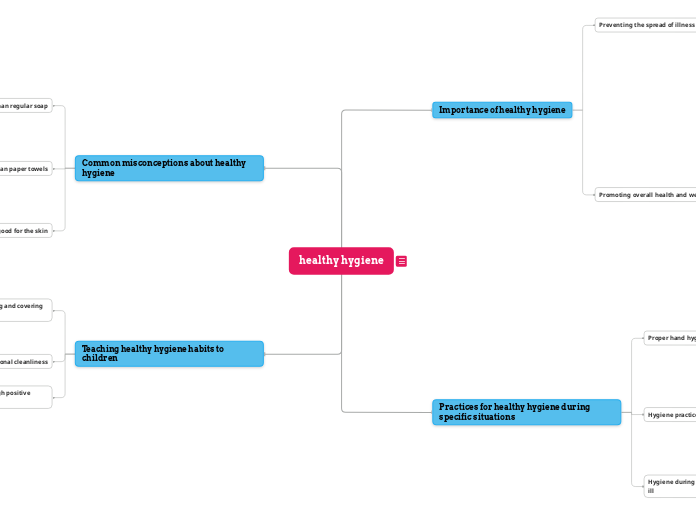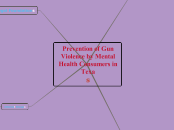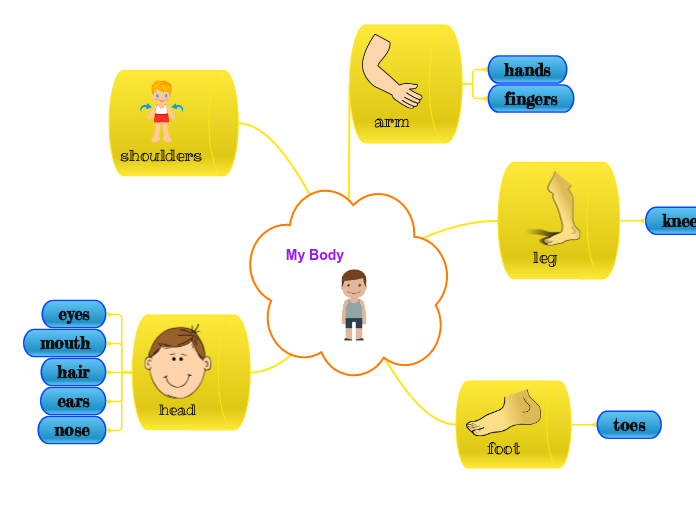healthy hygiene
2. Providing rewards or incentives for consistent hygiene habits
V. Conclusion
Teaching healthy hygiene habits to children
Reinforcing healthy hygiene habits through positive reinforcement
Praising children for practicing good hygiene
Establishing a routine for personal cleanliness
Demonstrating proper toothbrushing and flossing techniques
Teaching children to shower or bathe regularly
Explaining the importance of handwashing and covering mouth when sneezing or coughing
Encouraging good hygiene through games and songs
Using age-appropriate language and examples
Common misconceptions about healthy hygiene
Myth: Skipping showers or baths is good for the skin
Regular bathing helps remove sweat
and dead skin cells
dirt
Importance of maintaining personal cleanliness for skin health
Myth: Hand dryers are more hygienic than paper towels
Paper towels are more effective in removing moisture and bacteria
Comparison of hand dryers and paper towels in terms of cleanliness
Myth: Using antibacterial soap is better than regular soap
Regular soap is sufficient for removing germs
Explanation of antibacterial soap and its effectiveness
Practices for healthy hygiene during specific situations
Hygiene during illness or when caring for someone who is ill
Regularly cleaning and disinfecting surfaces in the home
Properly disposing of tissues and other contaminated items
Practicing respiratory hygiene
such as wearing a mask
Hygiene practices for food preparation and handling
Avoiding cross-contamination between raw and cooked foods
Cleaning kitchen surfaces and utensils regularly
Washing hands before and after handling food
Proper hand hygiene in public places
Wiping down frequently touched surfaces with disinfectant wipes
Avoiding touching public surfaces directly
Using hand sanitizer when soap and water are unavailable
Importance of healthy hygiene
Promoting overall health and well-being
Cleaning and sanitizing personal belongings
Disinfecting frequently touched items
such as phones and keys
Washing clothes and bedding regularly
Taking care of oral hygiene
Using mouthwash if desired
Flossing daily
Brushing teeth twice a day
Maintaining personal cleanliness
Paying attention to areas prone to sweat or odor
Using soap and water to clean the body
Showering or bathing regularly
Preventing the spread of illness
Avoiding touching face, especially eyes, nose, and mouth
Minimizing the risk of transferring germs from hands to face
Covering mouth and nose when sneezing or coughing
Disposing of used tissues properly
Using a tissue or elbow
Washing hands regularly
Paying attention to all areas of the hands
Scrubbing hands for at least 20 seconds
Using soap and warm water









